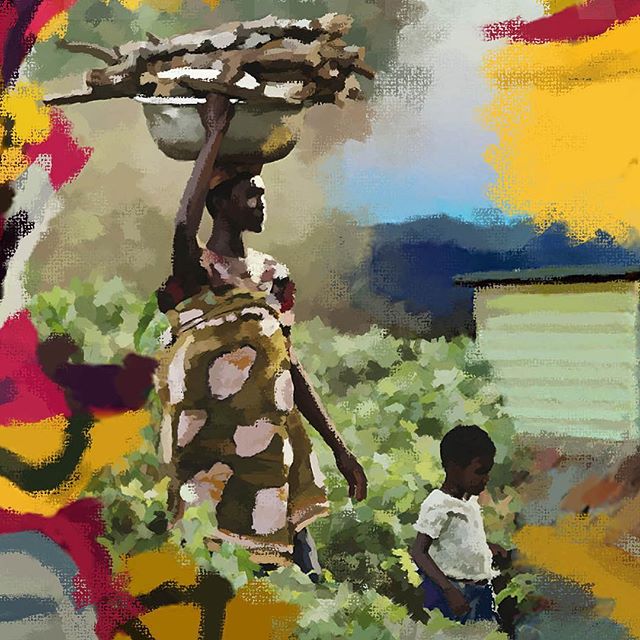
Feminism and sustainability
by Saoirse Joubert
In light of the recent movements for the battle for gender equality (Reclaim the Night, International Women’s Day, #MeToo, etc.), it is crucial that we acknowledge the various social, political, cultural and economic inequalities that women are facing today in all parts of the world. The challenges of equality confronted by millions of women are, particularly in today’s context, largely associated with issues surrounding the environment and the question of sustainability in an environmental context. The issue of climate change affects both men and women in different ways but the socioeconomic results of this have an important impact on gender and more specifically gender in regards to sustainable development. This interrelates with factors such as class, age, and especially poverty. But what effect do gender and the feminist movement have on debates on sustainability and climate change?
Firstly, we must ask what do we mean by sustainable development? The traditional view highlighted by Brundtland suggests that it correlates to the meeting of the human development goals without any depletion of natural resources. The desired result is a state of society where living conditions and resource use continue to meet human needs without undermining the integrity and stability of the natural system. Sustainable development can be classified as development that meets the needs of the present without compromising the ability of future generations. But how does the sustainable development agenda seek to ameliorate the degraded relationship between economy, ecology and society? What are the implications of this on gender and other socioeconomic aspects? By ensuring the stability of all actors by not exploiting resources and by finding new ways to provide energy which will, in turn, affect the social sphere whilst protecting ecosystems, will this definition intrinsically be inclusive of all individuals in society whilst acknowledging their specific needs?
From a feminist perspective, gender equality in regards to sustainability needs more attention given towards it. Sherilyn MacGregor’s (2009) research in her article ‘A Stranger Silence Still: The Need for Feminist Social Research on Climate Change’ highlights the idea that climate change is infant not gender-neutral and that it has gender-differentiated causes and implications on different individuals in different contexts. This claim also includes the idea that gender plays a role in the construction of climate change, the experiences of climate change, and institutional responses in regards to the issues which arise from it. The concept of the “masculinization of environmentalism” (MacGregor, 2009: 128) sheds light on the critical analysis of sustainability that men dominate the issue as scientific and economic experts, entrepreneurs, policymakers. In response to this, we can pick up on Cynthia Enloe’s idea of “It is always worth asking, ‘Where are the women?’” (1989: 133). Sustainability and climate change is something which concerns the interests of both men and women, but sustainability programmers have a tendency to be gender-blind and work primarily with men. What are therefore the implications of this imbalance in research on women? In turn, what effect will this have on the environment and climate change?
A crucial aspect of the idea of feminism and sustainability is the concept that environmental change affects different parts of the world and different individuals in different ways, but it will entail more negative effects and more prominent challenges for the most vulnerable groups in society, and particularly marginalized women. The global feminization of poverty reflects an important aspect of socio-economic inequality in regards to the idea that climate change possesses different levels of threat between different classes and genders. There is a general consensus that climate change will affect “the poor” the most (Giddens, 2009) but we must take into account the fact that “the poor” are not a homogenous group, and that approximately 70% of the world’s poor are women, who are unlikely to have the necessary resources to cope with climate change. One challenge of climate change which will affect women more than men is food and water scarcity and insecurity, in which women are more likely to go without basic necessities to prioritize their children’s needs. Women in less developed countries are also more likely to depend on natural ecosystems and the environment to provide for their families, and the impact of climate change (extreme drought, extreme flooding, fragmentation of ecosystems from excessive deforestation, etc.) will be worsened because of this reliance, where crop failures, ocean acidification, biodiversity loss and problems of food sovereignty will reduce the living conditions of the poor who already are in severe conditions of poverty.
However, when we consider sustainability and climate change, it is vital that we take into account the individual aspects of the billions of women who will be affected because of this, such as ethnicity, sexuality, and social class. The experiences lived by different women will make up the policies of action to influence the impact of climate change, and their contribution to environmental decision-making is essential if we want to achieve a situation where all women’s voices are heard in gender equality and environmental issues.
References
Enloe, C. (1989) ‘Bananas, beaches and bases: making feminist sense of international politics, Berkeley, Calif. ; London: University of California Press.
Giddens, A. (2009) ‘Politics of Climate Change’, Cambridge: Polity.
MacGregor, S. (2009) ‘A stranger silence still: the need for feminist social research on climate change’, The Sociological Review, 57 (2), 124-140.

0 Comments